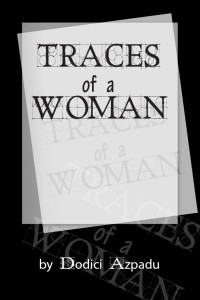by Dodici Azpadu
![]() Complex and compound sentences add depth and nuance to writing, but they must be constructed and connected correctly; otherwise, the errors make us look like amateurs.
Complex and compound sentences add depth and nuance to writing, but they must be constructed and connected correctly; otherwise, the errors make us look like amateurs.
This is a run-on sentence it contains two independent clauses incorrectly connected.
An independent clause is a group of words that can stand alone as a sentence; however, two independent clauses cannot be in the same sentence without a proper connection. If we omit a connection, the error is a fused sentence (as above). If we place a comma between the independent clauses, the error is a comma splice (below).
This is a run-on sentence, it contains two independent clauses incorrectly connected.
Comma splices are relatively easy to repair. After the comma, simply add one of the seven coordinating conjunctions. The mnemonic FANBOYS contains the coordinating conjunctions: FOR, AND, NOR, BUT, OR, YET and SO.
A semi-colon between independent clauses will also repair a run-on sentence.
This is no longer a run-on sentence; it contains two independent clauses correctly connected.
If the second independent clause explains the first (or summarizes it), we could replace the semi-colon with a colon or a dash. Use the dash only in informal writing.
This is no longer a run-on sentence: it contains two independent clauses correctly connected.
We can also repair run-on sentences by using a semi-colon, a transitional expression, and a comma, as in the sentence below. Transitional expressions include conjunctive adverbs such as therefore, consequently, however, and other transitional phrases like as a matter of fact, for example, and on the other hand.
This is no longer a run-on sentence; as a matter of fact, it contains two independent clauses correctly connected.
We can also restructure run-on sentences by making one of the independent clauses dependent. Then, we need only a comma to separate the clauses. If the independent clause begins the sentence, we can usually omit the separating comma.
While some sentences run on, others are short.
Some sentences are short while others run on.
These tips are guidelines. For better or worse, published writers frequently ignore grammar conventions.
Dodici Azpadu, MFA, PhD is a novelist, short story writer, and poet. Her fiction publications include: Saturday Night in the Prime of Life and Goat Song (Aunt Lute/Spinsters Ink) and subsequently Onlywoman (London, England). Living Room (2010) and Traces of a Woman (2014), both by Neuma Books, are available as ebooks. She’s currently at work on a novel, tentatively titled Living Lies.
 Her poetry publications include Wearing the Phantom Out (2013) and Rumi’s Falcon from Neuma Books. Individual poems have appeared in Malpais Review, Adobe Walls, ContraACultura (online), Parnassus, Sinister Wisdom, Latuca, The Rag, and The Burning Bush. Her work has also been anthologized in Centos: A Collage of Poems and Hey Pasean!
Her poetry publications include Wearing the Phantom Out (2013) and Rumi’s Falcon from Neuma Books. Individual poems have appeared in Malpais Review, Adobe Walls, ContraACultura (online), Parnassus, Sinister Wisdom, Latuca, The Rag, and The Burning Bush. Her work has also been anthologized in Centos: A Collage of Poems and Hey Pasean!
Dodici teaches “The Joy of Poetry” and “Craft of Creating Writing” classes through University of New Mexico’s Osher Lifelong Learning.
This article was originally published in the January 2011 issue of SouthWest Sage and is reprinted here by permission of the author.


